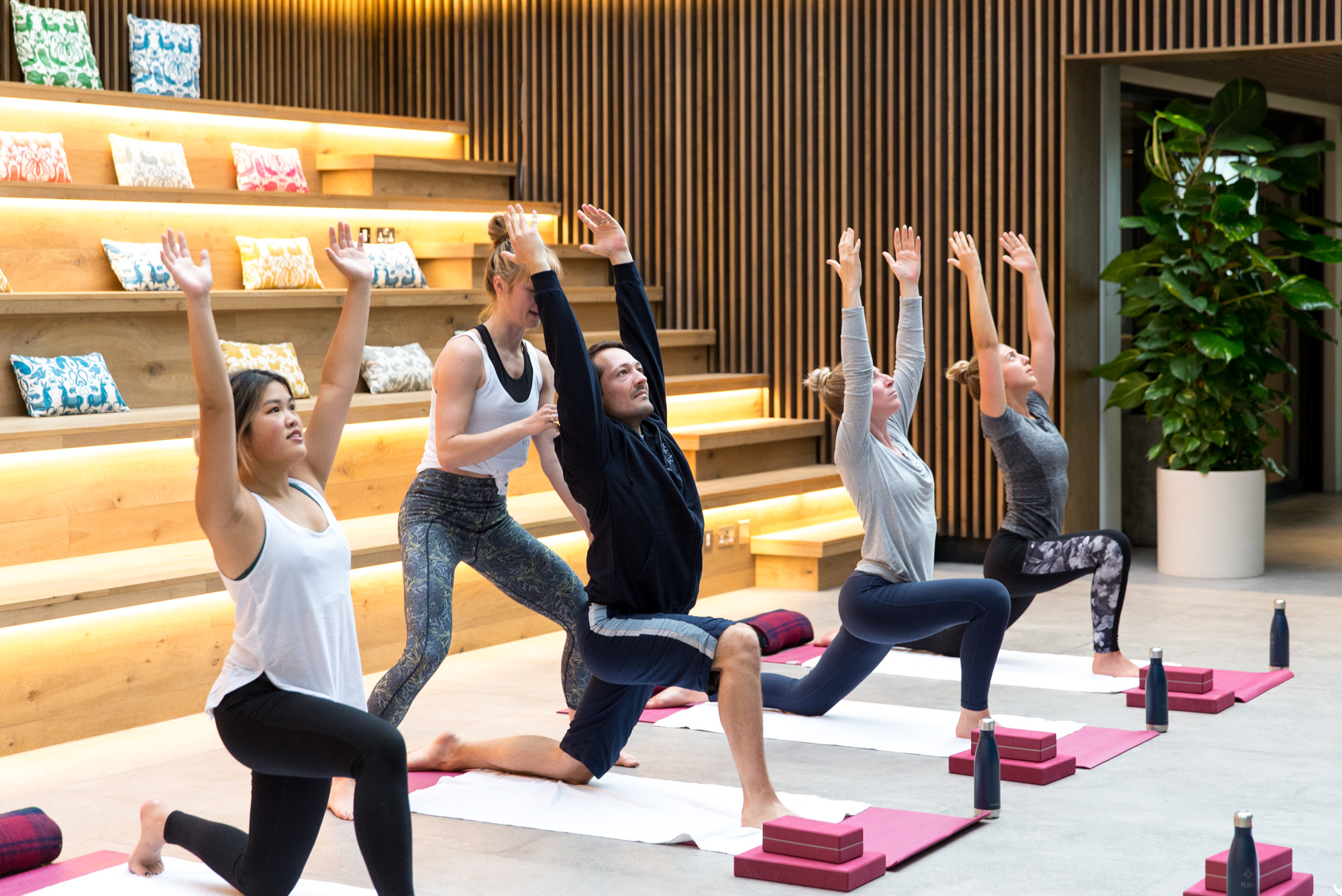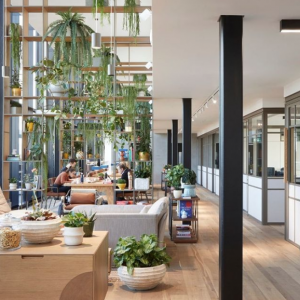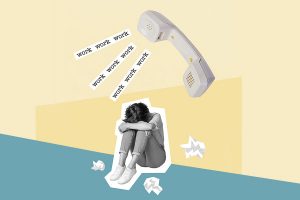This is the future of office life – and it’s going to change the world

If someone had told us on that fateful day in March 2020 when we hastily cobbled together a makeshift desk in the corner of the spare room, that we’d still be sitting there at the end of 2021 about to embark on our 460th Zoom meeting, we’d have thought it was about as likely as there being talk of a fourth national lockdown in the wake of another variant of the virus that keeps on giving. Oh, wait…
Indeed, working from home is way more the norm than any of us – employers, employees or the government – expected it to be, two years since the word Coronavirus first arrived like a bullet train into our unsuspecting vocabularies.

Office overhaul
But are we ever again going to be happy to spend even some of our days in a grey, sterile environment that does very little for our overall well being? The pandemic has caused something of a worker’s revolt. A refusal by employees to accept poor conditions has even collapsed parts of the supply chain and job vacancies – perhaps surprisingly given the amount of jobs lost at the height of the pandemic – are at a record high.

Katrina Larkin, co-founder, Fora
A pandemic positive is that health and happiness has shot to the top of the agenda among leaders, with 82% of companies finally making the wellbeing of their employees a top priority.
One woman who is blazing a trail in this area is Katrina Larkin, the co-founder and chief creative officer of Fora, premium flex workspaces across London. Big businesses such as Sony and the British Fashion Council have set up home in Fora locations, as well as individuals and small brands renting desk space.
“Our buildings are designed to really ensure that the people in them have the richest experience whilst at work. They’re unique and we really draw on the local story every time we open one – our most recent opening on Wells Mews, for example, used to be a garment factory in the 1920s, and we asked the British Fashion council to curate the photography. The detail really helps our residents feel like it’s their place, their work home,” she says.
Katrina’s aim with Fora was to curate an experience that helps people to be the best version of themselves – and it’s not enough simply to have an impressive architect or designer on board. “You can design amazing buildings but they’ve got to have the right energy,” she says. “There’s enough stuff going on in the external world – we want people to feel their work space is a safe haven filled with likeminded people.”
A hot topic in the business world right now is Environmental, Social, and Corporate Governance (ESG), an evaluation of a firm’s social and environmental conscientiousness. “It’s really about how we connect with the wider community and society as a whole, and the health and well being of the people who work in the buildings,” says Katrina. “Our locations have wellness spaces and we have personal trainers on site, which we subsidise. We also run group classes, be it Pilates or a Britney barre class, where everybody is jumping up and down together, because it’s important that wellbeing is about fun. We have Brompton bikes that enable people to avoid tubes and buses. There are mental health therapists accessible and available to everybody.”
Planet-saving workspaces
The climate crisis means we expect the company we work for to have an eco-consciousness – and it’s no longer enough simply to stick a couple of recycling bins across the office floor. “People today care about where they work, they care that the companies are giving back to society, they care about the environment,” says Katrina. “We do urban farming where we grow the food for our kitchen. We have beehives on our roofs, and we make sure that the air filtered into our buildings is as clean as possible. All our buildings are 100% green electricity, our cleaning products are non-bleach, and nothing is sent to landfill.”
And while it might be tempting to actually move into a workspace like Fora permanently (it sounds nicer than our house tbh), they are also adopting a hybrid approach to work. “A lot of our events, talks and wellness activity is online. If people are having a day where they work at home, they can feel connected to what’s going on here. We’re way beyond the physical space of our offices.”
All the big businesses who are joining this office revolution are taking the values of places like Fora on board. “We’re finding it’s not just about having an office and filling it with desks for them any more,” says Katrina. “When a company comes to see us and they’re talking about moving, I can tell instantly whether they’re going to move to us. If the business owner or the CEO genuinely cares about his or her employees, they make that decision to come to us, if they don’t, they don’t. Those people have square boxes – they may have the internet running really well but if they don’t support employee wellbeing, then they won’t retain their employees.”
All hail the demise of the depressing, soulless office space. We fancy leaving the spare room on more than the odd occasion, after all…
Find out more about Fora workspaces here









